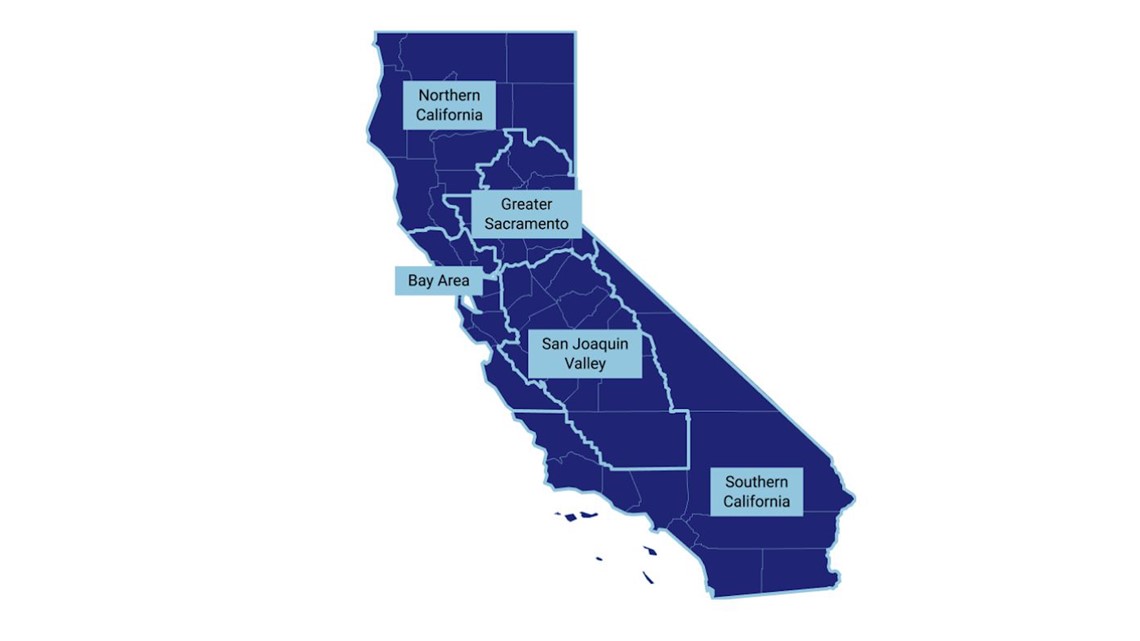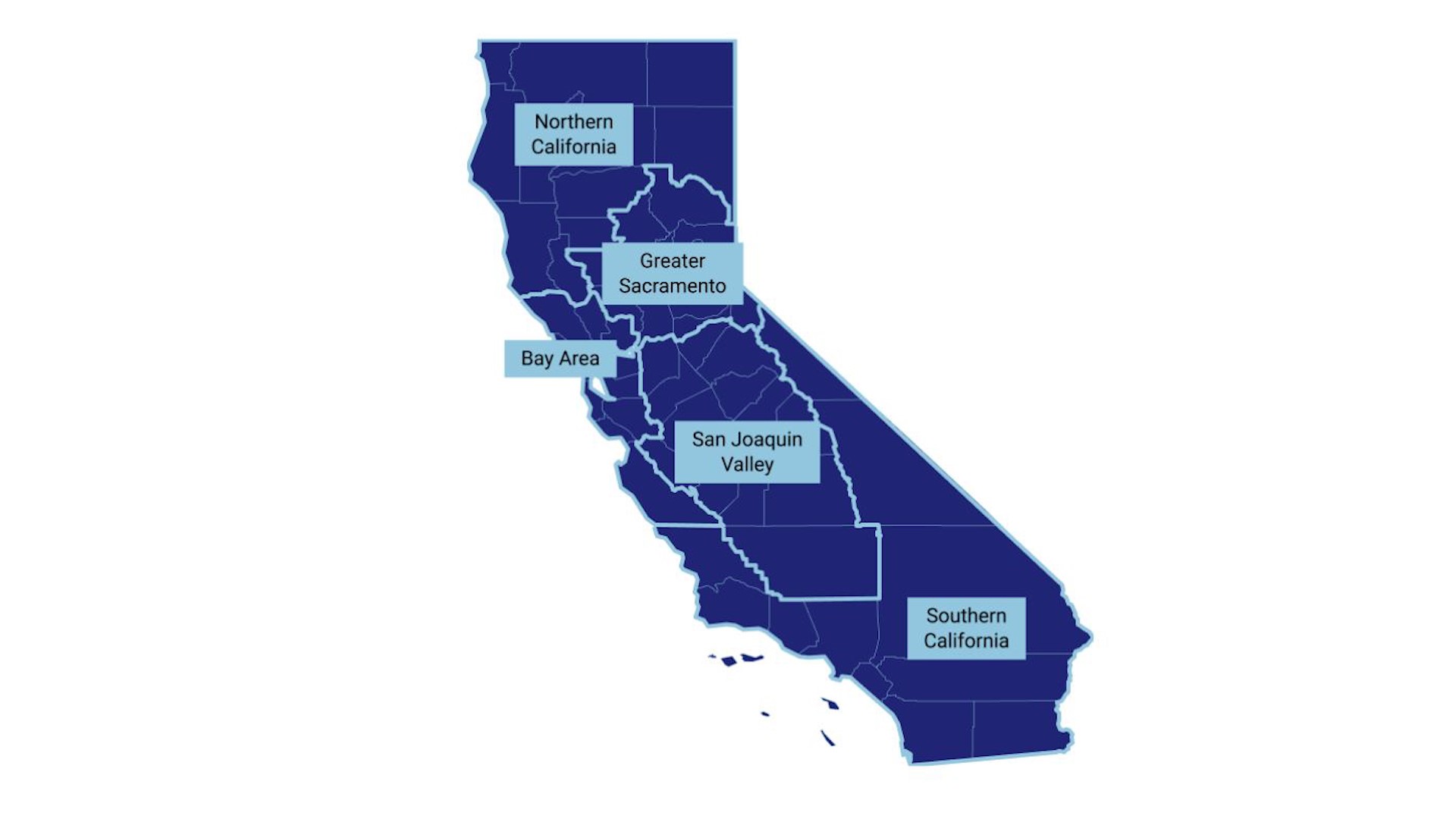SACRAMENTO, Calif. — The Greater Sacramento Region could move into a new stay-at-home order this week as ICU capacity falls closer to 15% according to a new report from the California Department of Public Health (CDPH).
According to the new report, the Sacramento region's ICU capacity fell 3% in the last day from 21.4% to 18.2%. Two regions, San Joaquin Valley and Southern California, have already fallen below 15% capacity and will start their stay-at-home orders at 11:59 p.m. on Dec. 6. Both the Northern California and Bay Area regions have increased ICU capacity slightly.
Here's each region's available ICU capacity as of December 6:
- Bay Area: 24.1%
- Greater Sacramento Region: 18.2%
- Northern California: 26.5%
- San Joaquin Valley: 6.6%
- Southern California: 10.3%
The stay-at-home order will remain in effect for at least three weeks after it starts. After the three weeks, the order will be assessed on a weekly basis and will be lifted only when ICU capacity meets or exceeds the 15% according to the CDPH coronavirus website.
The California regions, according to the new stay-at-home order:


The stay-at-home orders will require many non-essential businesses in the impacted regions to close. According to the CDPH, those businesses include:
- Bars
- Wineries and breweries
- Personal Services
- Hair Salons and barbershops
- Indoor and outdoor playgrounds
- Personal care services
- Museums, zoos, and aquariums
- Movie theaters
- Live audience sports
- Amusement parks
The businesses that can stay open are:
- Critical infrastructure
- Schools that are already approved for in-person learning
- Medical and dental care
- Childcare and Pre-k
The businesses that can stay somewhat open, but require 100% of people to wear masks are:
- Outdoor recreational facilities: Allow outdoor operation only without any food, drink or alcohol sales. Additionally, overnight stays at campgrounds will not be permitted.
- Retail: Allow indoor operation at 20% capacity with entrance metering and no eating or drinking in the stores. Additionally, special hours should be instituted for seniors and others with chronic conditions or compromised immune systems.
- Shopping centers: Allow indoor operation at 20% capacity with entrance metering and no eating or drinking in the stores. Additionally, special hours should be instituted for seniors and others with chronic conditions or compromised immune systems.
- Hotels and lodging: Allow to open for critical infrastructure support only.
- Restaurants: Allow only for take-out, pick-up, or delivery.
- Offices: Allow remote only except for critical infrastructure sectors where remote working is not possible.
- Places of worship and political expression: Allow outdoor services only.
- Entertainment production, including professional sports: Allow operation without live audiences. Additionally, testing protocol and “bubbles” are highly encouraged.
All gatherings of any size are prohibited according to the Dec. 3 order.



















